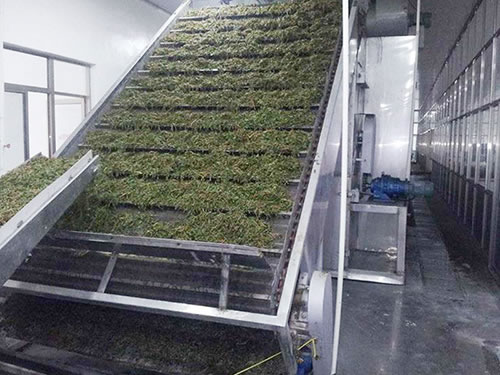





Libya's GDP, Agricultural Product Development
Libya, a country rich in natural resources, has experienced significant economic fluctuations in recent years. However, its agricultural sector remains an important aspect of the nation's economy, contributing to its Gross Domestic Product (GDP) and providing employment opportunities for many Libyans. The development of agricultural products plays a crucial role in ensuring food security and sustainability within the country.
In terms of GDP, Libya's economy is primarily driven by hydrocarbon industries, including oil and gas production. These sectors account for a substantial portion of the country's export earnings and government revenue. Despite this, the agricultural sector still holds significance due to its potential for growth and its impact on local communities.
The agricultural product development in Libya focuses on enhancing productivity, diversifying crop types, and promoting sustainable farming practices. The country's arid climate and limited water resources present challenges, but advancements in irrigation technology and agricultural research are helping to overcome these obstacles. Initiatives such as improved seed varieties, pest management techniques, and soil conservation efforts have led to increased yields and improved crop quality.
Furthermore, Libyan authorities recognize the importance of supporting the agricultural sector. They have implemented various policies aimed at encouraging farmers, investing in infrastructure, and promoting innovation. These measures include subsidies for inputs like fertilizers and pesticides, access to credit facilities, and training programs for farmers.
Moreover, Libya has made strides in expanding its agricultural output beyond traditional crops like wheat, barley, and olives. The introduction of new crops like vegetables, fruits, and nuts is increasing the diversity of the nation's food basket. This diversification not only enhances food security but also provides new market opportunities for Libyan farmers.
In conclusion, while Libya's hydrocarbon industry dominates its GDP, the agricultural sector remains an integral part of the country's economy. Continued investment and innovation in agricultural product development are key to fostering growth, improving livelihoods, and ensuring food security for the nation's future.

In Libya, the cultivation of wolfberries (Goji berries) is an emerging industry. The growing conditions for wolfberries are generally favorable in areas with sandy soil and a semi-arid climate, which can be found across various regions in Libya. However, the cultivation process does face some challenges due to the lack of advanced agricultural technology and irrigation systems, particularly in rural and remote areas where resources are scarce.
The drying and processing of wolfberries is crucial to ensure their quality and shelf life. Traditionally, sun-drying has been the most common method used in Libya, although this can be inconsistent due to weather conditions. Improving the drying facilities by using modern dehydration technology could significantly enhance the quality and uniformity of the product. Additionally, ensuring hygienic conditions during post-harvest handling and storage is important to prevent any bacterial or fungal growth that might compromise the nutritional value and marketability of the dried berries.

The use of an English fruit and vegetable dryer for the deep processing of wolfberry has yielded positive results. This equipment effectively dries the wolfberry, which preserves its nutritional value and enhances its shelf life. The drying process ensures that the natural color, flavor, and texture of the wolfberry are maintained, making it a popular ingredient in various health products and beverages. Overall, the fruit and vegetable dryer has been instrumental in promoting the development and utilization of wolfberry in the food industry.
Overall the application of fruit and vegetable dryers in the deep processing industry of goji berries in Libya holds significant importance It not only enhances the production efficiency and quality of Libyan goji berry related industries reduces production costs but also promotes the development of agricultural and sideline products industries However there are some issues with the application of fruit and vegetable dryers in the deep processing industry of goji berries that need further research and resolution In the future with the advancement of technology the performance of fruit and vegetable dryers will be further improved and their application in the deep processing industry of goji berries will become more widespread Looking forward to creating a new chapter forging ahead to create brilliance Let's work together for a brighter future for agriculture Jushang drying equipment wishes its Libyan customers prosperity and lasting foundation